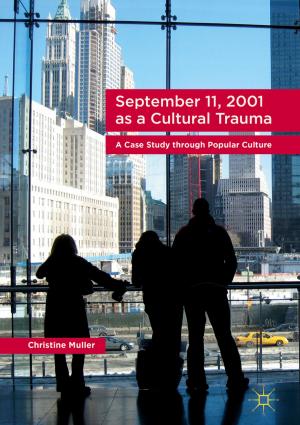Archaeoastronomy in the Roman World
Fiction & Literature, Literary Theory & Criticism, Ancient & Classical, Nonfiction, Science & Nature, Science, Physics, Astronomy| Author: | ISBN: | 9783319970073 | |
| Publisher: | Springer International Publishing | Publication: | March 27, 2019 |
| Imprint: | Springer | Language: | English |
| Author: | |
| ISBN: | 9783319970073 |
| Publisher: | Springer International Publishing |
| Publication: | March 27, 2019 |
| Imprint: | Springer |
| Language: | English |
This book explores the insights that Cultural Astronomy provides into the classical Roman world by unveiling the ways in which the Romans made use of their knowledge concerning the heavens, and by shedding new light on the interactions between astronomy and heritage in ancient Roman culture. Leading experts in the field present fascinating information on how and why the Romans referred to the sky when deciding upon the orientation of particular monuments, temples, tombs and even urban layouts. Attention is also devoted to questions of broader interest, such as the contribution that religious interpretation of the sky made in the assimilation of conquered peoples.
When one considers astronomy in the Roman world it is customary to think of the work and models of Ptolemy, and perhaps the Julian calendar or even the sighting of the Star of Bethlehem. However, like many other peoples in antiquity, the Romans interacted with the heavens in deeper ways that exerted a profound influence on their culture. This book highlights the need to take this complexity into account in various areas of research and will appeal to all those who wish to learn more about the application of astronomy in the lives and architecture of the Romans.
This book explores the insights that Cultural Astronomy provides into the classical Roman world by unveiling the ways in which the Romans made use of their knowledge concerning the heavens, and by shedding new light on the interactions between astronomy and heritage in ancient Roman culture. Leading experts in the field present fascinating information on how and why the Romans referred to the sky when deciding upon the orientation of particular monuments, temples, tombs and even urban layouts. Attention is also devoted to questions of broader interest, such as the contribution that religious interpretation of the sky made in the assimilation of conquered peoples.
When one considers astronomy in the Roman world it is customary to think of the work and models of Ptolemy, and perhaps the Julian calendar or even the sighting of the Star of Bethlehem. However, like many other peoples in antiquity, the Romans interacted with the heavens in deeper ways that exerted a profound influence on their culture. This book highlights the need to take this complexity into account in various areas of research and will appeal to all those who wish to learn more about the application of astronomy in the lives and architecture of the Romans.















